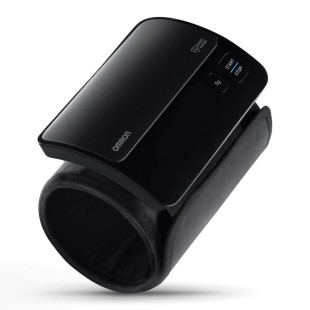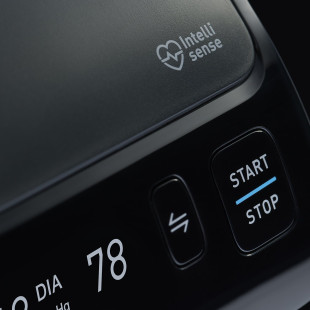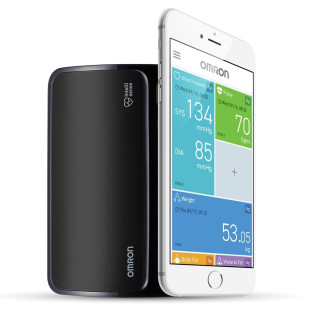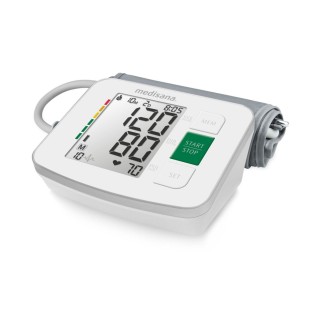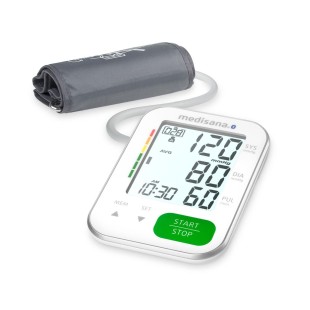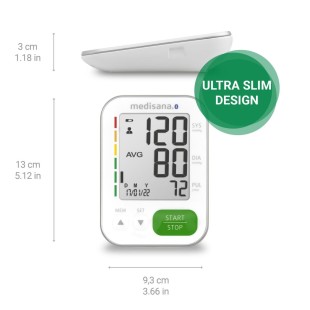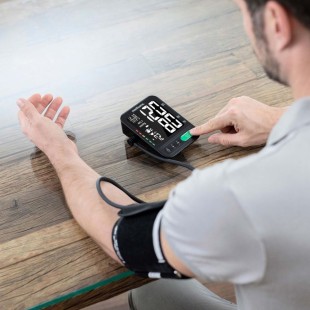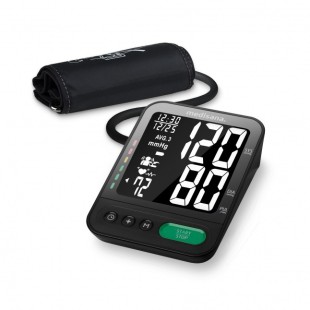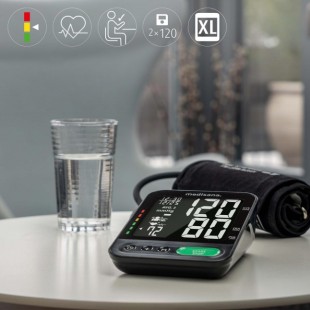Prekės aprašymas
ROSSMAX X5 PARR KRAUJOSPŪDŽIO MATUOKLIS
- Automatinis
- Pulso aritmijos nustatymas (PARR)*
- Prieširdžių virpėjimo nustatymas (AFib)*
- Priešlaikinio susitraukimo nustatymas (PC)*
- Tinkamo manžetės uždėjimo* technologija;
- Judesio nustatymo* technologija;
- Hipertenzijos rizikos nustatymas
- Trijų paskutinių matavimų vidurkis
- 7 dienų ryto/vakaro vidurkis
- Dviejų naudotojų 120 atminčių su datos ir laiko rodymu
- Svečio režimas
- Patentuota universali kūgio formos manžetė be latekso 24-40 cm
- Manžetės laikiklio dizainas
- Didelis LCD ekranas | 69 x 78 mm
- Adapterio lizdas
- Veikia nuo elementų arba iš elektros tinklo
- 5 metų garantija
- Patvirtintas Europos hipertenzijos draugijos (ESH) bei Britų hipertenzijos draugijos (BHS)
PARR TECHNOLOGIJA
Dėka ankstyvojo prieširdžių virpėjimo, ankstyvo susitraukimo, trachikardijos ir bradikardijos nustatymo išvenkite širdies ir kraujagyslių ligų ir insulto rizikos. Širdies sutrikimai reikalauja medicininio dėmesio, todėl ankstyva diagnozė yra pirmaeilės svarbos. PARR technologija nustato aritmiją reguliarių kraujo spaudimo tikrinimų metu be papildomų naudotojo įgūdžių, naudotojo įsikišimo ir matavimų ilgumo.
PARR – UNIKALI PULSO ARITMIJOS TECHNOLOGIJA
Ankstyvas širdies smūgio rizikos nustatymas, vienu mygtuko paspaudimu.
Kodėl verta rinktis?
- Prieširdžių virpėjimo nustatymas (AFib)
- Pirmaujanti pasaulyje technologija, nustatanti priešlaikinius skilvelių susitraukimus (PC). Priešlaikiniai susitraukimai/tachikardija/bradikardija
- Greičiausia technologija. 42 sekundės
- Pats patogiausias matavimo būdas. Vienu mygtuko paspaudimu
- Didelis tikslumas. 74-100%
- Patikrinta technologija. Tinka >95% pacientų
PRIEŠIRDŽIŲ VIRPĖJIMO NUSTATYMAS (AFIB)
Viršutinės širdies kameros (prieširdžiai) veikia nereguliariai (virpa) ir dažniausiai greitai vietoj to, kad veiktų efektyviai, stumia kraują į skilvelius. Ši būklė yra susijusi su didesne širdies krešulių, insulto, širdies sutrikimo ir kitų širdies komplikacijų rizika. Apie 10 % - 20 % pacientų, kurie kenčia nuo išeminio insulto taip pat kenčia nuo prieširdžių virpėjimo. Tai technologija, kuri nustato nereguliarų arba dažnesnį nei įprasta prieširdžio virpėjimą. Tokia būklė reiškia padidėjusią riziką susidaryti kraujagyslių užsikimšimui, infarktui arba kitoms širdies ligoms.
PRIEŠLAIKINIO SUSITRAUKIMO NUSTATYMAS (PC)
Tai papildomas, nestandartinis širdies plakimas generuojamas neįprastose širdies vietose, arba prieširdyje (PAC) arba skilveliuose (PVC). Šis papildomas plakimas sutrikdo įprastą širdies ritmą, kartais sukeldamas palpitaciją (šokinėjantį plakimą) krūtinėje. Kartais pasikartojantis. Jei nesusijęs su stresu, toks plakimas yra daugelio širdies negalavimų simptomas, taip pat padidinantis išeminio insulto riziką. Tai technologija, kuri leidžia nustatyti papildomus, nereguliarius širdies permušimus įvariose širdies dalyse dažniausiai prieširdyje arba skilveliuose. Šie papildomi širdies dūžiai, išbalansuoja širdies ritmą ir kartais sąlygoja permušimus.
JUDESIO NUSTATYMAS
Judesio detektorius primena naudotojui nejudėti ir matavimo metu nustato bet kokį kūno judesį. Nurodytas simbolis pasirodo kai tik nustatomas kūno judėjimas ir po kiekvieno matavimo.
MANŽETĖS NUSTATYMAS
Patikrina ir praneša, ar manžetė ant žąsto uždėta teisingai.
Papildomai užsakomi priedai:
- Adapteris
- L (34-46 cm) arba S (18-26 cm) dydžio manžetė
- Metrologinės patikros sertifikatas


